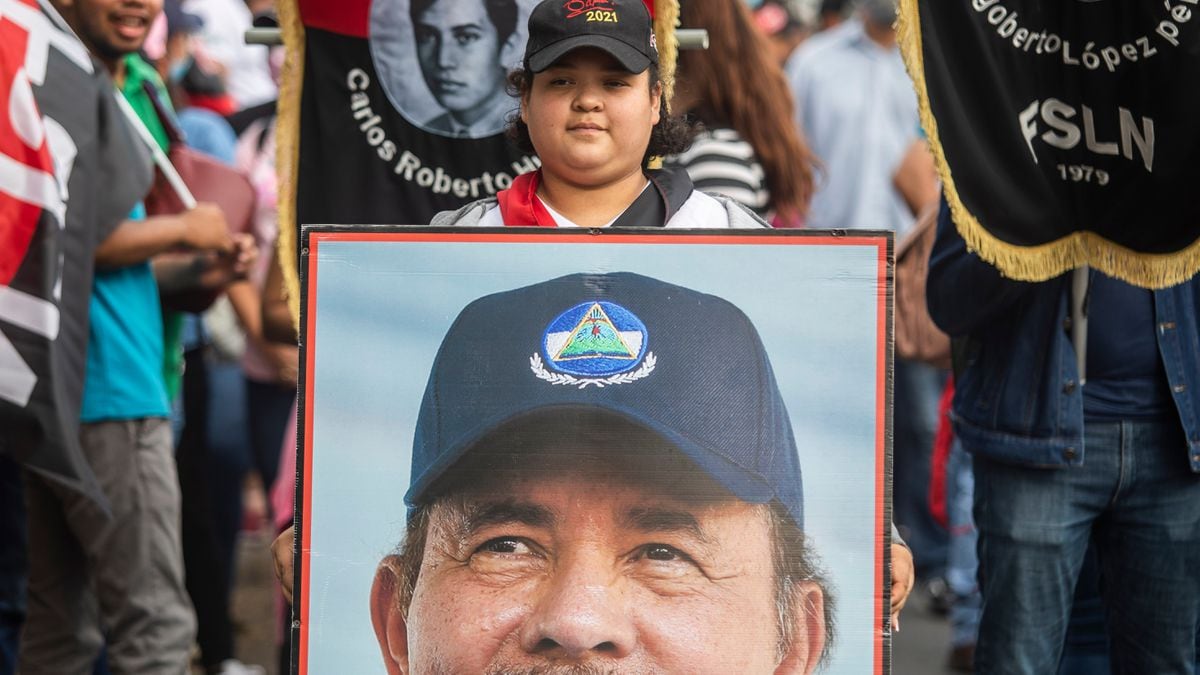Two US lawmakers have increased pressure on Daniel Ortega’s regime in Nicaragua. Democratic Senator Robert Mendez and fellow Republican Michael McCaul sent a letter on Friday to the presidents of El Salvador, Guatemala, Honduras and Costa Rica asking them to stop financing the Central American Bank for Economic Integration (CABEI) to the government of Nicaragua, to which they have called a “criminal regime.”
Both members of the US Congress are calling on Central American leaders to increase scrutiny and transparency over the money the bank delivers to Managua in the form of loans and financing. “We urge your country to utilize your leadership as a founding member of CABEI to ensure that Bank loans do not perpetuate the consolidation of the Nicaraguan dictatorship,” reads the letter, signed by Menendez and McCall. In the speech, the two lawmakers mention that the Ortega regime has been accused by the United Nations of committing crimes against humanity in the brutal repression that began first against the demonstrations that broke out in 2018 and then against critical voices, opposition leaders, journalists, intellectuals and intellectuals. activists. Ortega’s government also revoked the citizenship of more than 300 people, including writers Sergio Ramirez and Gioconda Pelli and journalists Carlos Fernando Chamorro and Sofia Montenegro.
Menendez and McCall also state in their letter that CABEI has become the main financing body for the Managua regime, which has received more than three billion dollars in bank financing. The lawmakers stated, “This funding provides a lifeline to the Ortega Murillo regime at a time of growing global condemnation of human rights abuses in Nicaragua.”
Menendez and McCall’s request comes a day after a discussion organized by the Center for Inter-American Dialogue, a think tank that analyzes international relations in the Western Hemisphere, in Washington, in which Dante Musi, head of CABEI, participated together. Political scientists Manuel Orozco, director of migration, remittances, and development programs at the Inter-American Dialogue, and Ryan Berg, director of the Americas Program at the Center for International Strategic Studies. Moussa stressed at the meeting that in the institution he runs, “we put politics aside” when it comes to freeing up money for the Ortega regime. “Their policies are not important,” Musa said. “What is important is that the money reaches the citizens.” The statements of the head of the multilateral bank sparked a wave of criticism at a time when the Ortega regime was accused of gross human rights violations. In their letter to Central American leaders, Mendez and McCall warned that “in the event that Ortega and Murillo do not allow a political opening, it will be necessary for their governments to use their voice and vote to suspend the financing of their criminal system.”
Join EL PAÍS to follow all the news and read without limits.
Participate

“Music buff. Social media lover. Web specialist. Analyst. Organizer. Travel trailblazer.”

:quality(85)/cloudfront-us-east-1.images.arcpublishing.com/infobae/TEQF6EONZRFGLLLDIDD4L2O4EE.jpg)

:quality(75)/cloudfront-us-east-1.images.arcpublishing.com/elcomercio/XU32LRAEZFDDPNVHLFU3CKVBYY.jpg)



More Stories
Sheinbaum, Galvez, Mainz campaign wrap-up, news and more
Sheinbaum and Mainz’s CDMX campaign wraps up: Road Alternatives and Street Closures
Ortega attacks Humberto Ortega and declares him a “traitor to the country”